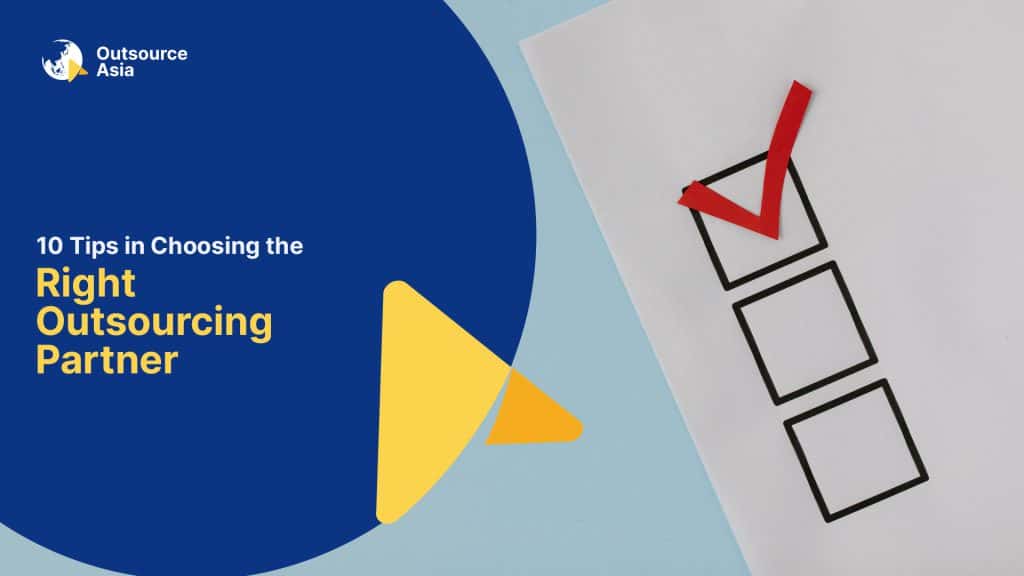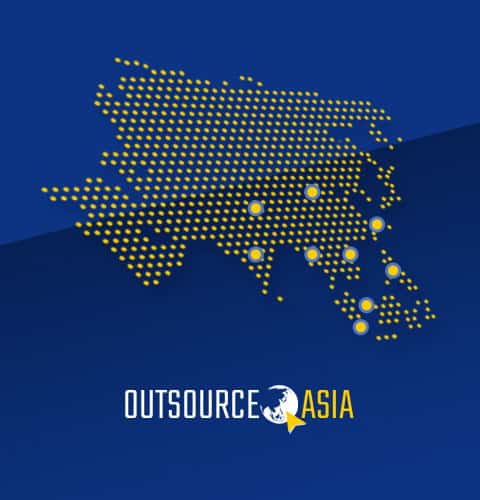
10 Tips in Choosing the Right Outsourcing Partner
Some business owners find it hard to let go, it’s in our entrepreneurial blood, they say. So, if you simply don’t want to rent more space, or hire the people yourself (but still want, or need the work to be done) then embracing the virtual business way of getting things done might be your best choice.
Bottom line, if you don’t mind having part of your business at arm’s length (it’s tough, I know, but come on guys, let go already!), you can choose to go the route that a lot of people are and use an offshore outsourcing partner, in another country. This tends to be the more financially attractive choice to most people.
Either way, you should pick a partner that enables revenue growth by accelerating market capture through modern strategies, or marketing in ways that are dedicated to your company vision and potentially with companies that provide results-driven professionals.
1. Evaluate your needs
Before hiring an outsourced service provider, assess your present capacity and future requirements. Evaluate even the strengths and shortcomings of the in-house staff if you’re supplementing it. Make a list of the critical information or skills you need to keep locally to be agile and effective, considering the expected growth (future head count). Perhaps your company’s distinctive value is in its editing and art personnel, and outsourcing engineering makes sense.
Alternatively, if your company’s success is dependent on its engineering prowess, art and editing services may be a better fit for outsourcing. If you don’t have an in-house team, estimate how many in-house resources you’ll need to execute your project. You’ll need someone to manage the outsourcing relationship, express your company values, and approve or reject deliveries, at the very least.
If you want to produce a series of goods that will be important to your firm in the future, you need to hire a technical expert and a project manager. These individuals can not only manage and shepherd the process, but they can also ensure that important product knowledge is always available locally and that you are not left in the cold if you need to switch providers.
2. Define your project requirements
It’s difficult to plan your project requirements until you have a partner to help you. At the very least, you should know what kind of product you want, what market it will compete in, what its approximate price point will be, and how many units you’ll need to break even.
If possible, have a budget in mind. Work backward from your business model if necessary. Make sure your budget is right for your target market and price. Decide when you want to introduce your product to the market. This information will be crucial when talking to possible partners about the project.
A good outsourcing partner will be able to inform you if your expectations are unrealistic and will be able to help you to change them. If you don’t like what you hear, you can always go somewhere else, but be wary of one supplier out of four who claims it can be done when the others all say no.
If there are any related products on the market that can provide your potential partner with a sense of the style and scope of your project, make sure to inform them. This will help your partner to grasp the extent of your concept and provide you with a more accurate estimate.
Finally, whether your product is a web or mobile app, don’t forget to think about things like tracking, registration, different language versions, and community features, among other things. These factors add time and money to projects, and they should be considered from the outset.
3. Verify provider references
Too many customers have been burned by service providers who have failed to deliver on their promises. Clients are left with half-completed projects and 34 percent of their budgets depleted. The last thing you want is to be looking for a quick fix that may or may not work and that you can’t afford.
4. Find a provider who understands your market
Ideally, find a source with experience in your specific business or market. This type of service will have already “learned” the parameters of your market and will not need to do so on your money.
5. Be time-zone friendly
Find a provider in a time zone that is reasonably compatible with your own. At best, communicating across various time zones is difficult and slow. At worst, it can lead to missed deadlines and strained relationships. Companies that promise to work all night to meet your hours should be avoided. This may work for minor tasks, but for larger ones, you will almost certainly have a fatigued and underproductive workforce.
6. Interview outsourcing teams the same way you would any new employee
Draw on your own experience employing staff while interviewing potential outsourcers. Is the outsourced service provider equipped with the talents, attitude, and dedication you seek on your team? Is the Outsourcer committed to your work ethic, shares your corporate values, and has a track record of honesty and transparency?
7. Evaluate communication skills
Communication is crucial to outsourcing success. The success of an outsourced project hinges on effective communication. When speaking with potential outsourcing partners, evaluate their management teams’ ability to comprehend your needs and communicate effectively with you and your employees. Although not all members of an outsourced team must speak English, those with whom you have interaction should be native speakers capable of effectively articulating your requirements to the development or quality assurance teams.
8. It’s not just about money
It’s difficult to resist the urge to go with the lowest bidder, and occasionally the lowest bidder is the best. However, any savings of 5% to 15% are worthless if your product is of inferior quality. Check to see if the quality of your vendor’s work fulfills the demands of your market.
9. Pick someone who understands the value of planning
The right outsourcing provider would urge that you start your collaboration by properly laying it out. Your manufacturing phase will go more smoothly if you and your vendor are on the same page when it comes to product design and expectations. Many competent providers will even recommend that you hire them for a planning phase initially. While many clients object, history has shown that planning ahead of time can save time and money in the long run.
10. Look for an outsourcing partner with a proven track record
Above all, your outsourcing partner should have a demonstrated track record of performance and professionalism. If you need references or testimonials, they should be able to give you them. Stay away from a company that can’t accomplish just one easy job, especially if it’s based overseas.
Looking for the right outsourcing partner for your web agency or to manage remote teams? Book a FREE APPOINTMENT with Outsource Asia experts today.


